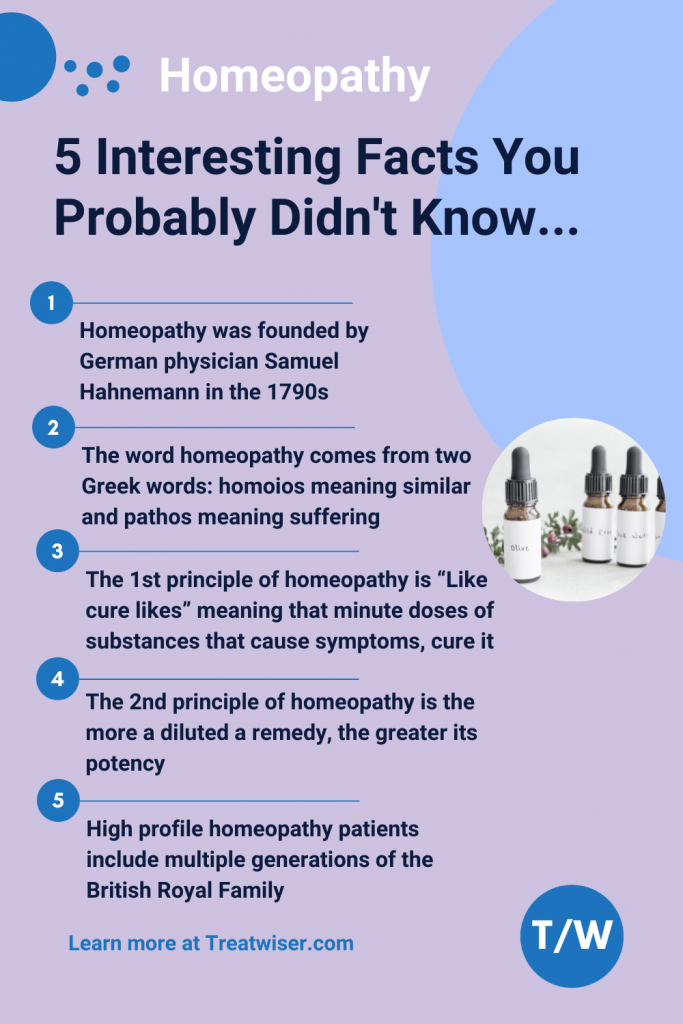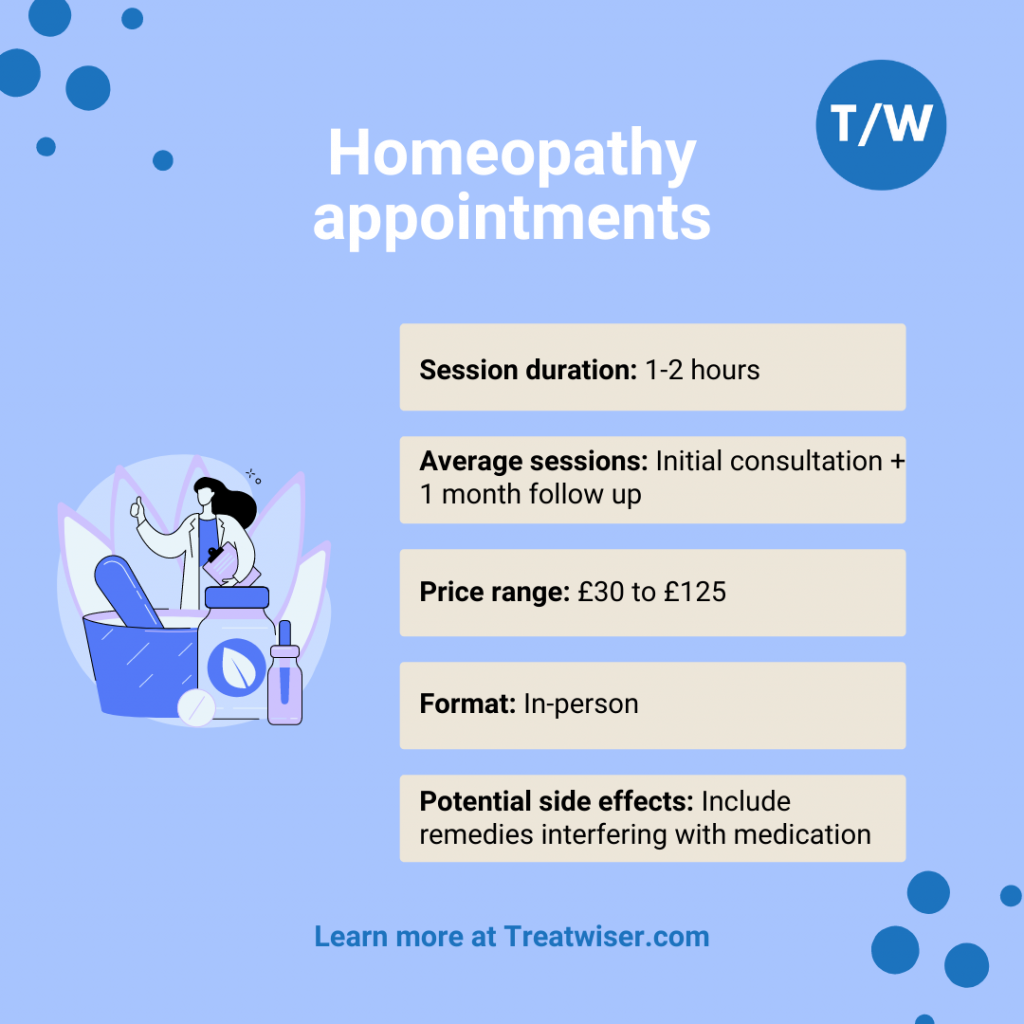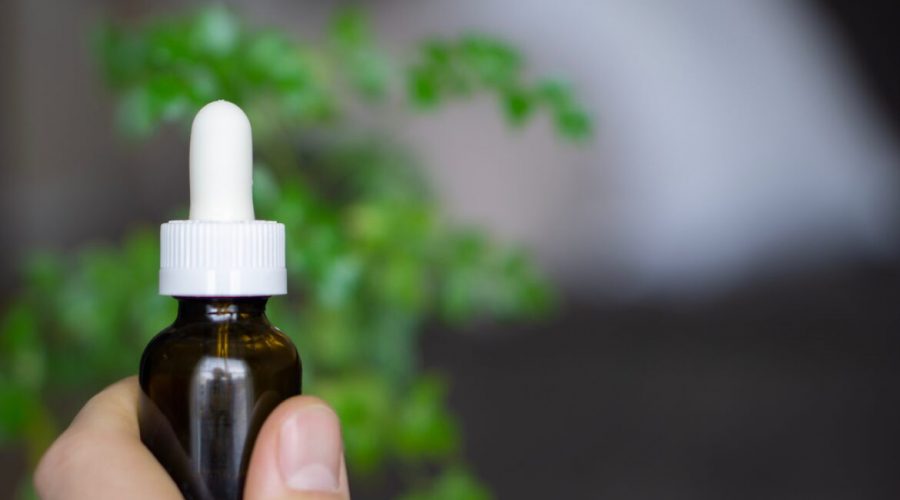Homeopathy is a holistic system of medicine which hundreds of millions of people use worldwide. Homeopathic medicine believes that the mind and body are linked, so focuses on treating the person as a whole as it is not possible to heal one part of the body without affecting the whole.
Using the key principle of “like cures like”, homeopathy typically uses dilutions of natural substances from plants, minerals, animals and chemicals to support the body heal itself.
In this article we shall take a look at homeopathy in more detail to understand its history, underlying principles, common uses as well as evidence to support it. We shall then take a look at what you can expect if you decide to proceed with treatment.
Table of contents
- 5 interesting facts about homeopathy
- What is homeopathy?
- What is the theory behind homeopathy?
- When and how is homeopathy used?
- What is the evidence to support homeopathy?
- What can I expect as a homeopathy patient?
5 interesting facts about homeopathy

What is homeopathy?
Homeopathy is a holistic system of medicine with over 200 years of history
Homeopathy is a low-cost, nontoxic system of medicine which uses natural substances to heal the body as a whole. The word homeopathy comes from two Greek words: homoios meaning similar and pathos meaning suffering.
The German physician Samuel Hahnemann founded homeopathy in the 1790s. He was keen on finding a more humane and rational approach to medicine, given the more invasive and barbaric medical practices of the day which included bloodletting with leeches and mercury-based laxatives.
What is the theory behind homeopathic medicine?
As a result of his work, Samuel Hahnemann derived three key principles of homeopathy:
- “Like cures like”
- The more diluted a remedy, the greater its potency
- An illness is specific to the individual
“Like cure likes” believes that minute doses of substances that cause symptoms of illness, cure it
“Each individual case of disease is most surely, radically, rapidly, and permanently annihilated and removed only by a medicine capable of producing (in the human system) the most similar and complete manner of the totality of the symptoms” – Dr. Samuel Hahnemann
In other words, this means that a substance in large doses that causes symptoms of an illness can cure it in minute doses.
Samuel Hahnemann also used the term Law of Similars to describe this principle. A similar principle also applied in conventional medicine as the basis for vaccines. For instance, doctors such as Edward Jenner and Louis Pasteur immunized the body from disease by using trace amounts. Such an action strengthened the body’s immune response to the disease itself.
The more a diluted a remedy, the greater its potency
Conventional medicine generally accepts that higher doses of medicine are more potent, however in homeopathy the opposite is true.
Also known as the Law of the Infinitesimal Dose, Samuel Hahnemann experimented with homeopathic remedies with increasing amounts of dilution which were believed to have fewer toxic side effects.
Today, homeopathic remedies are prepared using a process of dilution with pure water and vigorous shaking, known as succession to the extent that very few molecules of the original substance remain.
An illness is specific to the individual
Homeopathy recognizes that all individuals are different and uses a process of “profiling” to record all physical, mental and emotional attributes and look for associated patterns.
Homeopathy recognises multiple symptom patterns for the same illness, with different remedies prescribed for each pattern. For instance, there are over 200 symptom patterns relating to headaches, each with a corresponding remedy.
When and how is homeopathy applied?
As a holistic and natural treatment, homeopathy is ideal for those looking for a holistic approach to their health and wellbeing, and is used for a wide range of health conditions. It is important to understand that as a complementary medicine, homeopathy should not be used as a replacement for conventional medicine, however can be used alongside conventional treatment.
Homeopathy is used in a broad range of situations
As a system of medicine, many homeopaths believe it is possible to use homeopathy with any condition.
People commonly seek out homeopathy for the following reasons, however more research is required to support its efficacy, and you should always speak to your GP or qualified medical practitioner before booking any appointments:
- Allergies (e.g., hay fever)
- Chronic fatigue syndrome
- Low mood
- Digestive tract conditions
- Headaches
- Skin conditions (e.g., dermatitis)
- Stress
Natural remedies are key to homeopathic medicine
Natural remedies form the core of your homeopathy treatment and are selected by your homeopath based on your symptom patterns. Homeopathic remedies come in various forms including tablets, liquids and powders.
What is the evidence to support homeopathic medicine?
Despite having high profile patients including multiple generations of the British Royal Family, scientific studies are yet to uncover conclusive evidence to support how or if homeopathy works.
To date, research has reported homeopathic remedies working no better than placebos and there is no scientific basis toi support how it prevents diseases.
What can I expect as a homeopathy patient?
Here are some other things you need to consider when considering homeopathy:
The homeopathy consultation
During your initial consultation which usually lasts one to two hours, your homepath will ask questions about your current health, medical history as well as other aspects of your life such as general wellbeing, diet and lifestyle.
The homeopath will use your answers to develop a complete picture of your health and based on your symptom pattern will prescribe a course of treatment based around homeopathic remedies which may take the form of a tablet, liquid or powder.
You can also use Treatwiser’s directory to find a homeopath near me. Use the search features to narrow your search by location (e.g., homeopathy near me in London), professional body membership status, and more.

How do I find a homeopathist and what qualifications should they have?
Homeopathy is an unregulated profession in the UK, meaning that a homeopath does not need to obtain a license or successfully complete training to practice.
As such, it is important to ensure that your homeopath has attained the necessary level of training and experience. If your homeopath is a member of a voluntary regulatory body, this is reassurance that he or she has a suitable level of training and experience and must follow their code of ethics.
Such bodies include:
How much will homeopathic medicine and treatment cost?
Prices for homeopathy can vary quite substantially from around £30 to £125 per session.
This price would not include homeopathic remedies which cost roughly £5-£10 per course.
How many appointments will I need and over what period?
The number of sessions depends on the complexity and severity of your situation.
It is likely that your homeopath will recommend a follow-up appointment within 1 month to check in on the process and make any adjustments to the course of treatment. This follow-up appointment will typically be shorter than your initial consultation.
Are homeopathic remedies safe for everyone?
Homeopathic remedies are generally safe, with a small risk of major side-effects. However you must be wary of substances that might not be safe or will interfere with other medicines you take.
It is important to speak to your doctor before stopping any treatment prescribed by a doctor or procedures in favour of homeopathic remedies.
In the UK, specialist pharmacies regulated by the General Pharmacy Council produce most homeopathic remedies. Official homeopathic pharmacopoeia standards provide safety and quality assurance when preparing remedies.
Most homeopathic remedies are unlicensed meaning that they can only be ordered by homeopaths for individual patient use. There are some licensed homeopathic remedies (e.g., for allergies) which can be purchased in health food shops, pharmacies and clinics.
What are homeopathic medicines made from?
Homeopathic remedies are non-toxic and natural, typically coming from plant, mineral, animal or chemical sources. As such, they are generally safe for people of all ages including children.
Preparation of remedies includes dilution using pure water and vigorous shaking, known as succession. Homeopathic remedies may take the form of a tablet, liquid or powder.





